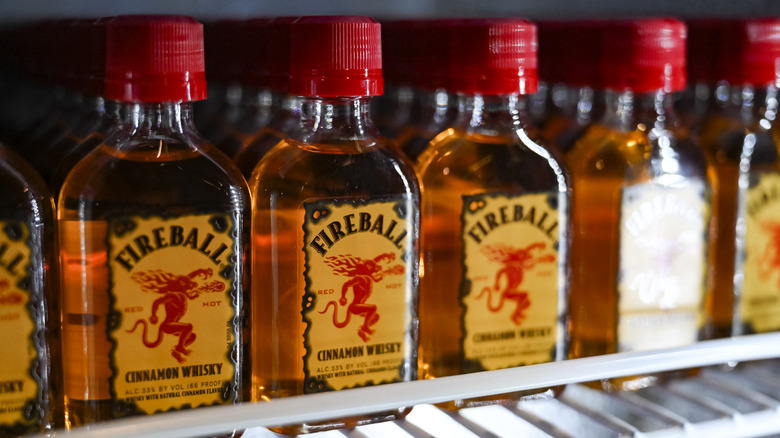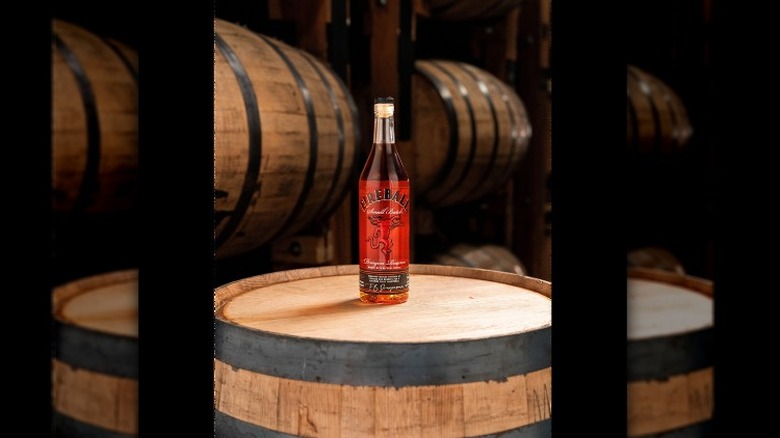Fireball Is Trying To Up Its Game With Barrel-Aged Cinnamon Whiskey
In the world of flavored whiskies, Fireball Cinnamon Whisky is among the most well-known options. Sure, it may not technically be whiskey, as whiskey has at least 40% ABV and Fireball has only 33% ABV, but this drink still has whiskey's signature burn.
To further its success in the whiskey category, Fireball is releasing a smoky, barrel-aged whiskey to its product line. According to PR Newswire, the Dragon Reserve edition of Fireball will be available to purchase starting June 16 on the Reserve Bar website. Only 618 bottles will be up for grabs, but you can buy one for $20. To compare, a same-size bottle (750 ml) of Jack Daniels costs around $25, Crown Royal Reserve costs around $45, and Johnnie Walker Blue Label costs around $190.
That being said, Fireball's latest creation won't be available in every state, so if you're interested in purchasing a bottle of Dragon Reserve whiskey, you should make sure you can find it first.
What makes Fireball's Dragon Reserve whiskey special?
While Fireball's Cinnamon Whisky has cinnamon, vanilla, and pepper notes, Fireball's barrel-aged Dragon Reserve tastes a bit different. This small-batch whiskey features smoky wood and caramel notes, per the Reserve Bar website. Price-wise, Dragon Reserve only costs about $4 more than the original Fireball.
As for its barrel-aged aspect, Dragon Reserve bears a few significant differences compared to its predecessor. The original Fireball uses aged whiskey stored in old bourbon barrels, but Dragon Reserve is stored in charred oak barrels for about three months.
Of course, perhaps the most enticing thing about Dragon Reserve is its exclusivity. As previously mentioned, this whiskey is being released in a relatively small quantity — and only in certain states. On the other hand, the original Fireball is available in countless supermarkets, convenience stores, and even gas stations. However, gas station Fireball technically isn't whiskey at all, but rather a flavored malt liquor. Limited releases of much-hyped products, especially when paired with low price points, may lead to a quick sellout.

